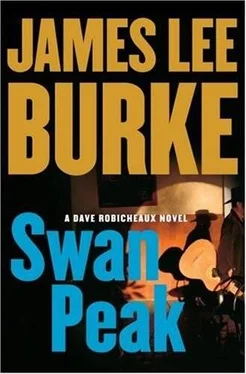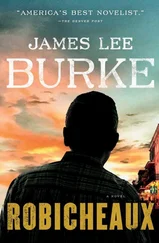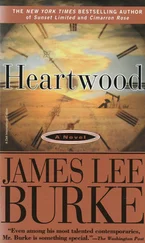James Burke - Swan Peak
Здесь есть возможность читать онлайн «James Burke - Swan Peak» весь текст электронной книги совершенно бесплатно (целиком полную версию без сокращений). В некоторых случаях можно слушать аудио, скачать через торрент в формате fb2 и присутствует краткое содержание. Жанр: Триллер, на английском языке. Описание произведения, (предисловие) а так же отзывы посетителей доступны на портале библиотеки ЛибКат.
- Название:Swan Peak
- Автор:
- Жанр:
- Год:неизвестен
- ISBN:нет данных
- Рейтинг книги:5 / 5. Голосов: 1
-
Избранное:Добавить в избранное
- Отзывы:
-
Ваша оценка:
- 100
- 1
- 2
- 3
- 4
- 5
Swan Peak: краткое содержание, описание и аннотация
Предлагаем к чтению аннотацию, описание, краткое содержание или предисловие (зависит от того, что написал сам автор книги «Swan Peak»). Если вы не нашли необходимую информацию о книге — напишите в комментариях, мы постараемся отыскать её.
Swan Peak — читать онлайн бесплатно полную книгу (весь текст) целиком
Ниже представлен текст книги, разбитый по страницам. Система сохранения места последней прочитанной страницы, позволяет с удобством читать онлайн бесплатно книгу «Swan Peak», без необходимости каждый раз заново искать на чём Вы остановились. Поставьте закладку, и сможете в любой момент перейти на страницу, на которой закончили чтение.
Интервал:
Закладка:
I didn’t know what I’d expected to find. The congregants were both Indian and white working people, most of them poor and uneducated. Their form of religion, at least as I saw it in practice there, was of a kind that probably goes back to the earliest log churches in prerevolutionary America. South Louisiana is filled with it. In the last twenty-five years, it has spread like a quiet fire seeping through the grass in a forest full of birdsong. It offers power and magic for the disenfranchised. It also assures true believers that they will survive an apocalyptical holocaust. It assures anti-Semites that Israel will be destroyed and that the Jews who aren’t wiped off the planet will convert to Christianity. More simply, it offers succor and refuge to people who are both frightened by the world and angry at the unfair hand it has dealt them.
I sat on a folding chair at the back of the tent, a patina of wood chips under my shoes, ground fog now puffing out of the darkness. The minister wore a beard that was barbered into lines that ran to the corners of his mouth and around his chin. His navy blue suit looked tailored, snug on his hips and narrow shoulders; his silver vest glittered like a riverboat gambler’s. His enunciation was booming, the accent faintly southern without properly being such, the words sometimes unctuous and empathetic, sometimes barbed and accusatory, like the flick of a small whip on a sensitive part of the soul. The congregants hung on every word as though he were speaking to each of them individually.
There was no overt political message, but the allusions to abortion and homosexual marriage threaded their way in and out of his narration. A woman with pitted cheeks and black hair cut in bangs was sitting on the edge of her chair next to me. She wore jeans with cactus flowers sewn on the flared bottoms and a black-and-red cowboy shirt with white piping below the shoulders and around the pockets. Her chin was lifted as though she were trying to see over the heads of the people in front of her. I offered to change chairs with her.
“That’s all right, I was looking for my friend,” she said. “ There he is. I thought he had run off on me.”
She smiled when she spoke, her eyes lingering on the opposite side of the tent, where a tall man wearing a nylon vest and a coned-up white straw hat and a pocket watch with a fob strung across his stomach was watching the crowd. I saw the tall man bend over and show what appeared to be a photograph to a couple of people sitting at the end of a row. A moment later, he showed the photograph to others. One of the ushers had taken notice of him and was staring intently at the tall man’s back. The usher happened to be Jamie Sue Wellstone’s driver, the man who seemed to have no other name than Quince.
Take a chance , I thought. “Is your friend a cop?” I asked the woman next to me.
“Why you want to know?” she said.
“He was showing a photograph to some people. That’s what cops do sometimes, don’t they?”
“Troyce looks like a cop. But he’s not. How long do these things last?”
“Depends on how broke the preacher is.”
She gave me a second look. Then she looked at me again. I could almost hear the wheels turning in her head. “You just happen to be passing by and decide to get out of the rain?”
“A guy has got to do something for kicks.”
“That line is from a movie.”
“Is that a fact?” I said.
“Yeah, Rebel Without a Cause . These kids who hate each other are about to drive stolen cars to the edge of a cliff to see who’ll jump out first. But James Dean and this guy named Buzz become friends, and so it doesn’t make any sense for them to try and kill each other anymore. So James Dean says something like ‘Why are we doing this?’ Buzz says, ‘You got to do something for kicks, man.’”
While she told her story, her eyes were fixed steadily on mine. They were brown with a tinge of red in them, or maybe that was the distortion of the light under the tent. But she was pretty in an unusual way, innocent in the way that people at the very bottom of our society can be innocent when they have nothing more to lose and hence are not driven by ambition and the guile that often attends it.
“But you are,” she said.
“I’m what?”
“What you said.”
“I’m a cop?”
“I can always tell. But you look like a nice guy just the same.” She turned her attention back to the stage. “That’s Jamie Sue Wellstone? If my boobs would stand up like that, I wouldn’t be singing in a backwoods shithole under a piece of canvas in a rainstorm. I had mine tattooed, you know, chains of flowers, that kind of crap? They never recovered. They just flounce around now. What a drag.”
The people in front of us turned and stared as though the crew from a spaceship had just entered the tent.
“What’s your name?” I asked.
“Candace Sweeney. When I was a roller-derby skater, I got called Candy. But my name is Candace. What’s yours?”
“Dave Robicheaux.”
“A cop, right?”
“There’re worse things.”
“See, I can always tell,” she said.
Jamie Sue Wellstone began to sing “Amazing Grace.” Her rendition of it was probably the most beautiful I had ever heard. I believe its author, John Newton, would have wept along with the congregants in that unlikely setting of a rain-darkened tent in western Montana, far from an eighteenth-century slave ship midstream in the Atlantic Passage. I believe even the wretched souls in Newton’s cargo hold would have forgiven Newton his sins against them if they had known how their suffering would translate into the song Jamie Sue was singing. Or at least that was the emotion that she seemed able to create in her listeners.
The crowd loved her. Their love was not necessarily spiritual, either. To deny her erotic appeal would be foolish. Her evening gown looked like pink sherbet running down her body. Her hands and pale arms seemed small in contrast to the big Martin guitar that hung from her neck; it somehow made her diminutive figure and the loveliness of her voice even more mysterious and admirable. In an act of collective faith, the congregants both elevated her and reclaimed her as one of their own. Her wealth was not only irrelevant; that she had turned her back on it to join with her own people in prayer made her even more deserving of their esteem. Her songs were of droughts, dust storms, mine blowouts, skies peppered with locusts, shut-down sawmills, and crowning forest fires whose heat could vacuum the oxygen from a person’s lungs. How could she know these things unless she or her family had lived through them?
When the congregants saw Jesus’ broken body on the cross, they saw their own suffering rather than his. When they said he died for them, they meant it literally. In choosing to die as he did, rejected and excoriated by the world, he deliberately left behind an emblematic story of their ordeal as well as his.
When the audience looked up at the sequins glittering on Jamie Sue’s pink gown, when they saw the beauty of her face in the stage lights and heard the quiver in her voice, they experienced a rush of gratitude and affirmation and love that was akin to the love they felt for the founder of their faith. Idolatry was the word for it. But to them it was little different from the canonization of saints.
Their tragedy lay in the fact that most of them were good people who possessed far greater virtue and courage than those who manipulated and controlled their lives.
At intermission, the ushers poked broomsticks up into the canvas to dump the pooled rainwater over the sides of the tent. The air was damp and cold, the Mission Mountains strung with clouds. In the distance I could see a waterfall frozen inside a long crevasse that disappeared into timber atop a dark cliff. The people around us were eating sandwiches they had brought from home, and drinking coffee from thermos jugs. I told Candace Sweeney I was surprised no basket had been passed.
Читать дальшеИнтервал:
Закладка:
Похожие книги на «Swan Peak»
Представляем Вашему вниманию похожие книги на «Swan Peak» списком для выбора. Мы отобрали схожую по названию и смыслу литературу в надежде предоставить читателям больше вариантов отыскать новые, интересные, ещё непрочитанные произведения.
Обсуждение, отзывы о книге «Swan Peak» и просто собственные мнения читателей. Оставьте ваши комментарии, напишите, что Вы думаете о произведении, его смысле или главных героях. Укажите что конкретно понравилось, а что нет, и почему Вы так считаете.












